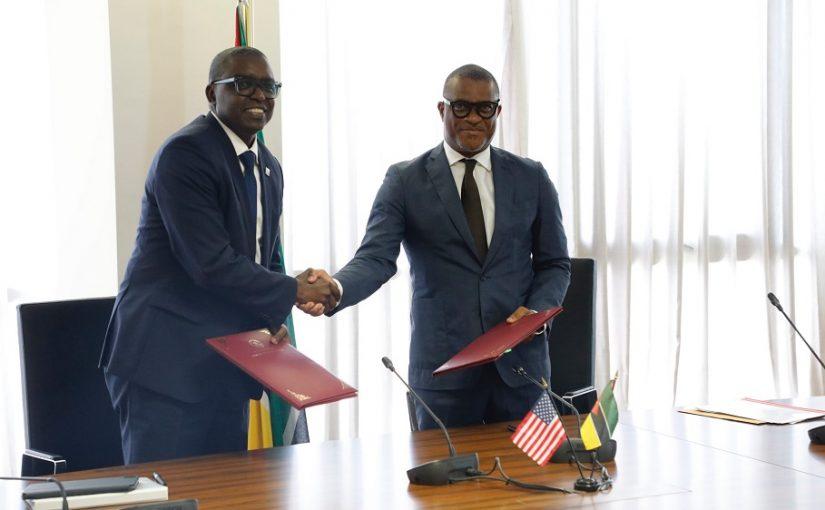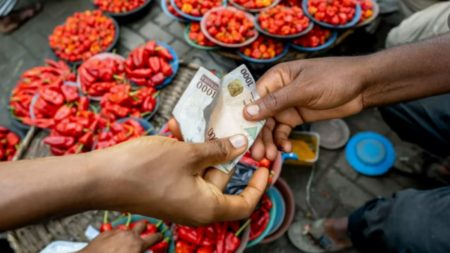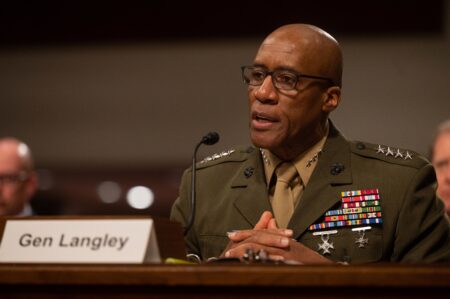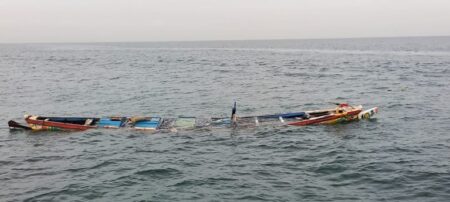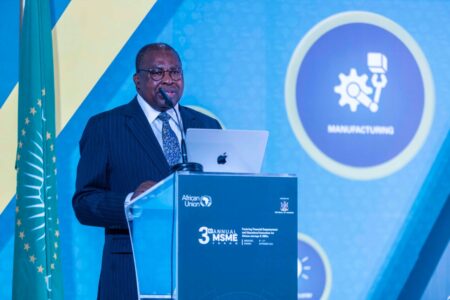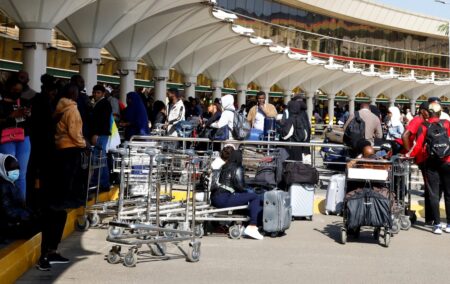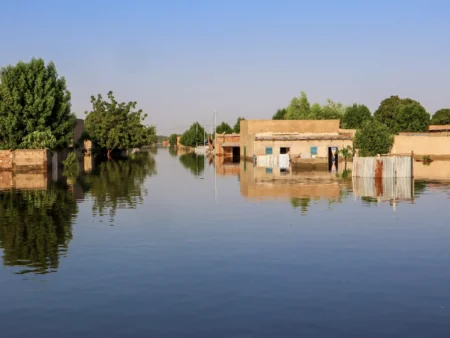- Visiting U.S. Millennium Challenge Corporation (MCC) Deputy Chief Executive Officer (DCEO) Mahmoud Bah and Minister of Economy and Finance Max Tonela signed a key agreement called an Aide Memoire during a meeting at the Ministry of Economy and Finance.
- The Government of the Republic of Mozambique developed the goals and reforms documented in the Aide Memoire.
- The priorities include connectivity and rural transport, promotion of investment in commercial agriculture, and integrated climate management and coastal development.
On January 30, 2023, the visiting U.S. Millennium Challenge Corporation (MCC) Deputy Chief Executive Officer (DCEO) Mahmoud Bah and the Minister of Economy and Finance of Mozambique, Max Tonela, signed a key agreement called an Aide Memoire during a meeting at the Ministry of Economy and Finance in Mozambique. This non-binding document details the two governments’ agreement on the scope and objectives of MCC’s compact with Mozambique. The signing of the proposed compact is expected to take place in 2023.
The Government of the Republic of Mozambique has taken the lead in developing the goals and reforms documented in the Aide Memoire. The priorities identified in the document include connectivity and rural transport, promotion of investment in commercial agriculture, and integrated climate management and coastal development.
These projects will be implemented in the Zambézia province, while key reforms of the compact will involve nationwide reforms aimed at improving road maintenance and the business environment. The Government of Mozambique has committed to increasing its allocation of funding to the road maintenance system under the Administração Nacional de Estradas and Fundo de Estradas by 50 per cent, or US $37.5 million.
The Millennium Challenge Corporation is an independent U.S. government agency established in 2004 with the goal of reducing global poverty through economic growth. MCC provides time-limited grants and assistance to countries that meet rigorous standards for good governance, fighting corruption, and respecting democratic rights.
As a result of this agreement, the MCC compact has become a critical component of the broader U.S. government assistance in Mozambique.
In close collaboration with the Government of Mozambique, the U.S. government provides more than US $500 million in annual assistance to improve the quality of education and healthcare, promote economic prosperity, and support the overall development of the nation. This assistance will contribute significantly to the growth and prosperity of Mozambique, and the MCC compact will play a crucial role in this effort.
What It Means for the SADC Region
The signing of the Aide Memoire between the United States and Mozambique on January 30, 2023, marks a significant milestone in the efforts to improve economic growth and prosperity in the SADC region.
The agreement, which details the two governments’ agreement on the scope and objectives of the Millennium Challenge Corporation’s (MCC) compact with Mozambique, will have far-reaching implications for the entire Southern African Development Community (SADC) region.
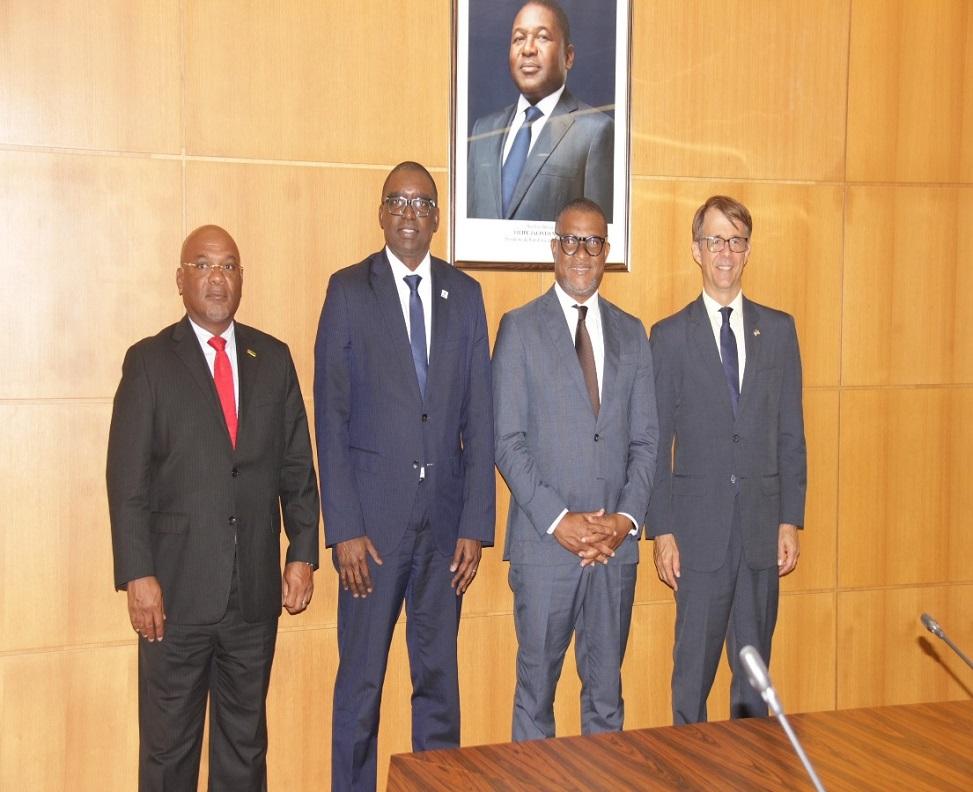
The success of the MCC compact in Mozambique will likely lead to increased U.S. investment in the SADC region, which will, in turn, result in more economic growth and job creation. The MCC provides time-limited grants and assistance to countries that meet rigorous standards for good governance, fighting corruption, and respecting democratic rights. By demonstrating their commitment to these standards, SADC countries will become more attractive destinations for U.S. investment and will benefit from increased economic growth and prosperity.
Furthermore, the MCC compact in Mozambique will serve as a catalyst for regional integration and cooperation in the SADC region. The compact will promote the development of cross-border infrastructure projects, such as improved road and rail networks, which will increase trade and investment flows among SADC countries. This, in turn, will contribute to regional stability and growth, as well as improve the quality of life for people in the region.
United States and Mozambique Relations
The relationship between the United States and Mozambique has been growing stronger in recent years, as the two nations work together on a range of initiatives aimed at promoting economic growth and reducing poverty. In addition to the recent signing of the key agreement between the U.S. Millennium Challenge Corporation (MCC) and the Mozambican government, there are several other ongoing projects and initiatives that demonstrate the strong bond between the two nations.
One of the most notable projects is the U.S. government’s support for Mozambique’s agriculture sector. Through a combination of technical assistance, investment, and trade promotion, the U.S. is working to help Mozambican farmers increase their yields and improve the quality of their products. This not only benefits farmers and their families, but also contributes to the overall economic growth of Mozambique by increasing exports and creating new markets for Mozambican products.
Trade between the United States and Mozambique has also been on the rise in recent years. According to the U.S. Department of Commerce, exports from the United States to Mozambique reached US$139.3 million in 2020, while imports from Mozambique to the United States were valued at US$102.6 million. These numbers demonstrate the growing economic relationship between the two nations and the potential for further growth in the future.
In addition to economic initiatives, the United States is also involved in Mozambique’s security. The U.S. government provides training and assistance to Mozambican security forces, helping them to maintain stability and prevent the spread of terrorism and other forms of violence. This collaboration is critical in ensuring the continued growth and prosperity of Mozambique, and the U.S. government is committed to working closely with Mozambique to address security challenges and promote peace and stability.





